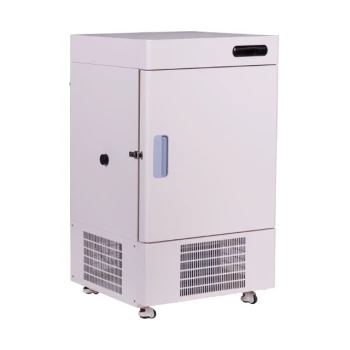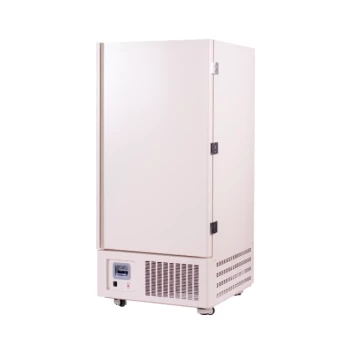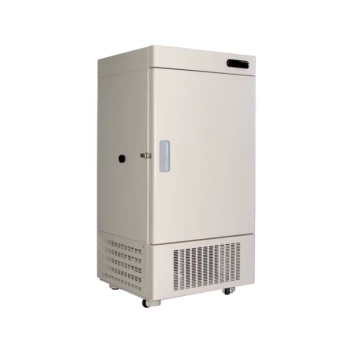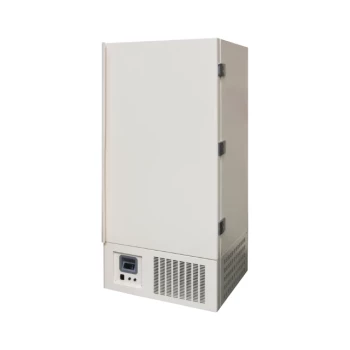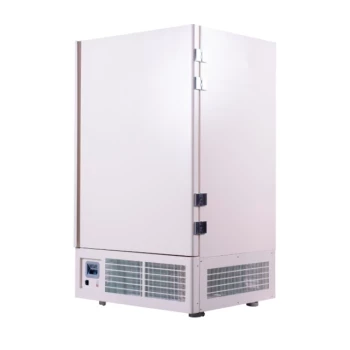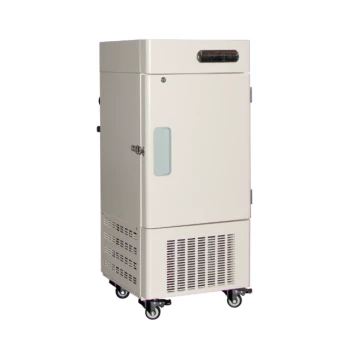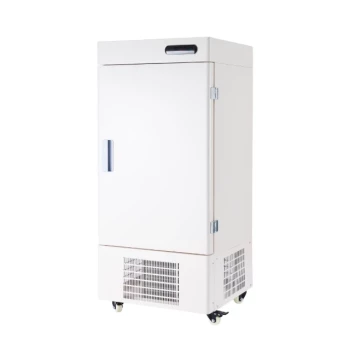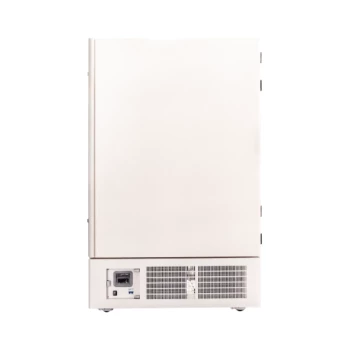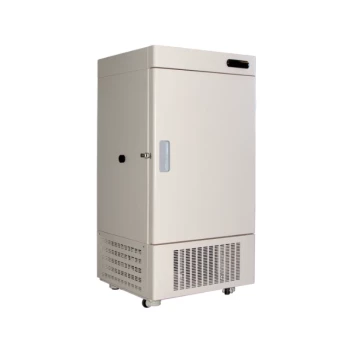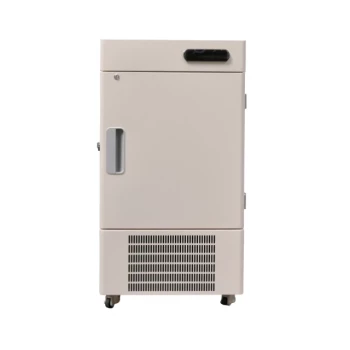At its core, an ultra-low temperature (ULT) freezer is a specialized piece of equipment designed for the long-term preservation of sensitive biological materials. By maintaining temperatures between -40°C and -86°C (and sometimes even lower), these freezers effectively pause biological time, halting the chemical and enzymatic processes that would otherwise degrade critical samples like vaccines, DNA, proteins, and tissues.
The fundamental purpose of a ULT freezer is not just to keep samples cold, but to stop molecular activity almost completely. This preserves the structural integrity and biological viability of materials that are essential for research, medicine, and biomanufacturing.
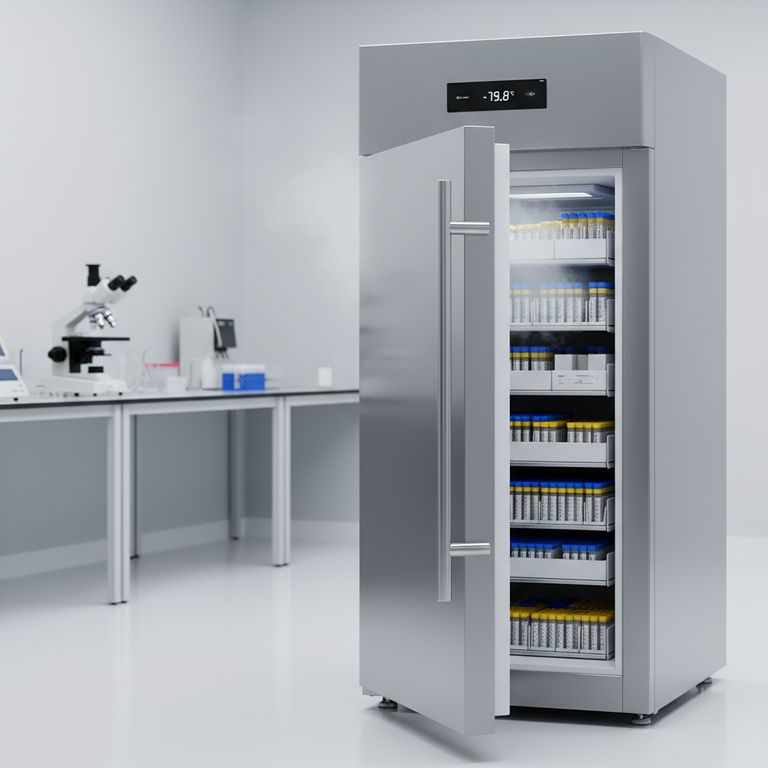
The Science of Preservation: Why Extreme Cold Matters
Standard freezers are insufficient for long-term biological storage because significant molecular activity can still occur. ULT freezers create an environment where the very mechanisms of degradation are frozen in place.
Halting Molecular Activity
At warmer temperatures, even below freezing, enzymes remain active and can slowly break down crucial molecules like DNA and RNA. Water molecules can also form damaging ice crystals.
The extreme cold of a ULT freezer dramatically slows molecular motion, effectively stopping these enzymatic reactions and preventing the structural damage that would render a sample useless.
Preventing Protein Denaturation
Proteins, enzymes, and modern vaccines (like mRNA vaccines) rely on a precise, complex three-dimensional shape to function. Heat and even moderate cold can cause these molecules to unfold, or denature, permanently destroying their biological function.
ULT storage locks these delicate structures in place, ensuring their functional integrity is maintained over months or years.
Ensuring Long-Term Viability
For materials like living cells, bacteria, viruses, or tissue samples, the goal is often to preserve their viability—the ability to be revived and used later.
By freezing them at ultra-low temperatures, all metabolic processes are suspended. This prevents cell death and allows the samples to be stored in a state of suspended animation until they are needed.
Common Applications in Science and Medicine
ULT freezers are indispensable pillars in any modern life science or clinical facility. Their use cases span from foundational research to frontline medical logistics.
Research and Discovery
Laboratories store vast libraries of DNA, RNA, and protein samples in ULT freezers. This ensures that reference materials for long-term studies remain consistent and uncontaminated, providing reliable data for experiments that may span decades.
Biomanufacturing and Pharmaceuticals
In biomanufacturing, ULT freezers are critical for preserving the integrity of master cell banks, which are used to produce therapeutic drugs and vaccines. They are also used to store the final drug products, ensuring they remain stable and effective from production to patient.
Clinical Biobanking
Hospitals and research institutions maintain biobanks of patient samples, including blood, plasma, and tissue. Storing these in ULT freezers allows for future diagnostic testing, disease research, and the development of personalized medicine. The global distribution of COVID-19 vaccines is a prime example of their importance in public health logistics.
Understanding the Key Considerations
While essential, deploying a ULT freezer involves trade-offs and requires careful management. These are not simple appliances but pieces of critical infrastructure.
Energy Consumption
Maintaining temperatures of -80°C requires a significant and constant energy input. Modern units emphasize energy efficiency to reduce operational costs and environmental impact, but they remain one of the most power-hungry devices in a typical lab.
Mechanical Reliability
ULT freezers typically use a cascade refrigeration system, where two cooling circuits work in tandem to achieve such low temperatures. This complexity means that mechanical reliability is paramount. A freezer failure can result in the catastrophic loss of invaluable, often irreplaceable, samples.
Critical Monitoring and Alarms
Because the contents are so valuable, ULT freezers are equipped with advanced monitoring systems. These include temperature data logging, door-open alerts, and remote alarm systems that notify personnel of any deviation from the set temperature, allowing for swift intervention to prevent sample loss.
Making the Right Choice for Your Goal
The required storage temperature is dictated entirely by the sample type and the desired storage duration.
- If your primary focus is short-term storage or less sensitive reagents: A standard laboratory freezer (-20°C) is often sufficient and far more energy-efficient.
- If your primary focus is long-term preservation of nucleic acids, proteins, or enzymes: A -80°C ULT freezer is the industry standard to completely prevent degradation and ensure sample integrity over many years.
- If your primary focus is preserving the viability of whole cells or complex tissues: You require a ULT freezer, typically at -80°C or even colder (down to -150°C in some cases), to halt all biological activity and prevent cell death.
Ultimately, using a ULT freezer is an investment in the long-term stability and value of your critical biological assets.
Summary Table:
| Key Feature | Purpose & Benefit |
|---|---|
| Ultra-Low Temperature (-40°C to -86°C) | Halts molecular activity, preventing degradation of sensitive samples. |
| Long-Term Preservation | Maintains sample integrity and viability for months or years. |
| Critical for Research & Biobanking | Essential for storing DNA, proteins, vaccines, and cell cultures. |
| Advanced Monitoring Systems | Alerts users to temperature deviations to prevent catastrophic sample loss. |
Protect your most valuable biological samples with the right equipment. KINTEK specializes in providing reliable lab equipment, including ultra-low temperature freezers, to meet the demanding needs of research, biomanufacturing, and clinical laboratories. Ensure the long-term stability of your vaccines, cell lines, and reagents. Contact our experts today to find the perfect ULT solution for your laboratory.
Visual Guide
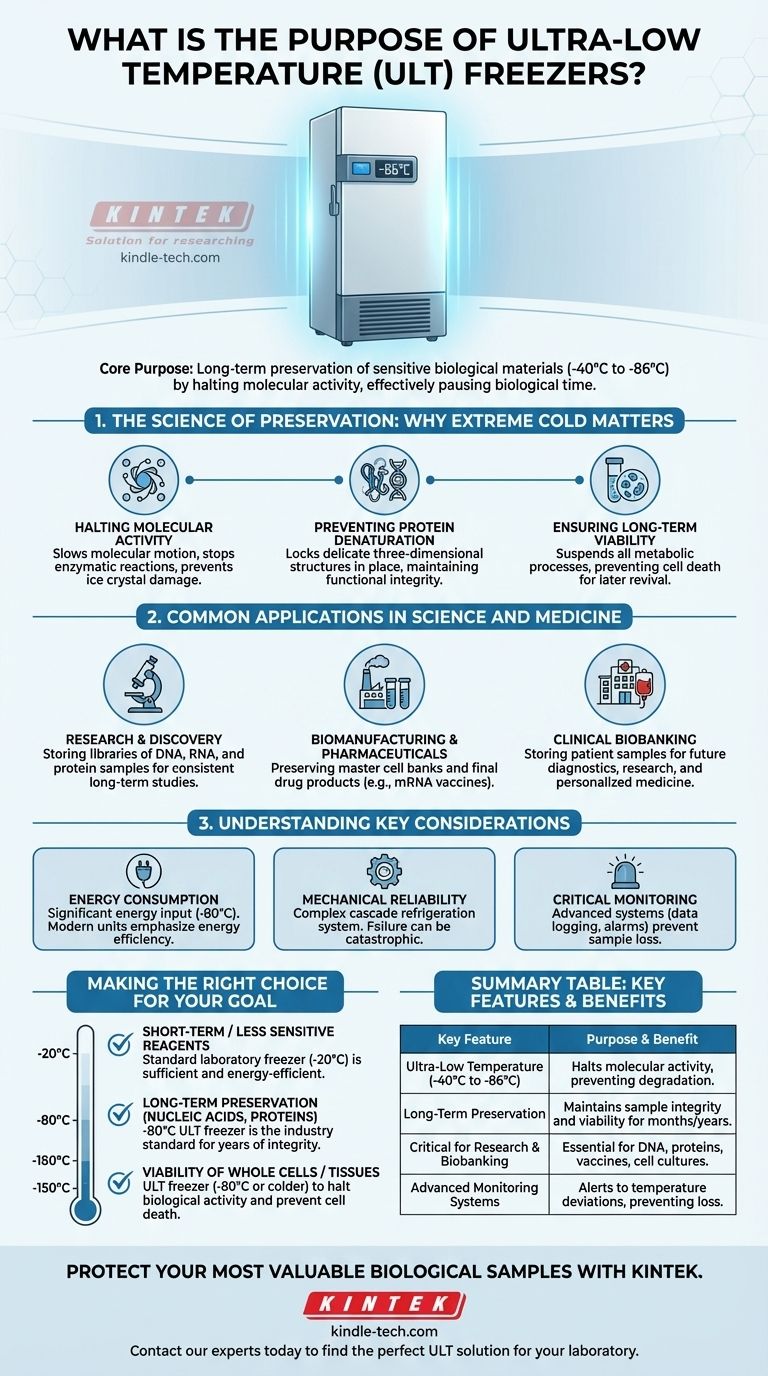
Related Products
- 108L Vertical Ultra Low Temperature ULT Freezer
- 508L Advanced Vertical Ultra Low Temperature Freezer for Critical Laboratory Storage
- 408L Advanced Vertical Laboratory Ultra Low Temperature Freezer for Critical Research Material Preservation
- 708L Ultra Low Temperature Freezer High Performance Laboratory Freezer
- 208L Advanced Precision Laboratory Ultra Low Temperature Freezer for Cold Storage
People Also Ask
- What are ultra-low temperature freezers designed for? Preserving Your Most Valuable Biological Samples
- Why are ULT freezers considered vital equipment in labs? Ensuring Uncompromised Sample Integrity for Critical Research
- How are advancements in compressor technology and refrigerant fluids improving ULT freezers? Boost Efficiency & Cut Costs
- How do ultra-low temperature freezers work? Unlocking the Secrets of -86°C Sample Preservation
- How is temperature controlled in ultra low temperature freezers? A Guide to Stable -80°C Storage
